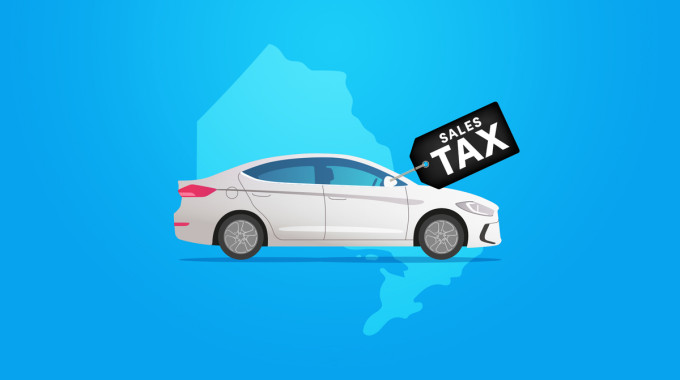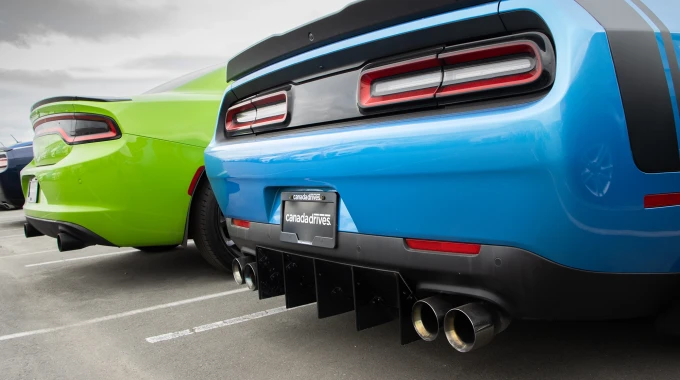
Buying a Car: Is it Better to Pay Cash or Finance?
If you’re considering buying a car, you might be grappling with the decision of whether to pay for your new daily driver with financing or cash. It’s a common conundrum for new car buyers. Both have their advantages and disadvantages, and the right answer usually depends on what makes the most sense for your situation...
We’re going to discuss both sides of the equation – buying a car with lump sum cash versus financing through a lender. We’ll also discuss a common third option that blends the first two.
The main advantage of buying a car with cash
Let’s state the obvious – most people don’t have large sums of cash in their savings accounts just waiting for a big purchase like a new car. But if you do in fact have thousands of dollars tucked away somewhere, then there is a clear benefit in putting it towards your car purchase.
Car Loans 101
If you’re unfamiliar with how car financing works, here’s a quick summary.
With a car loan, you can borrow enough money to buy a vehicle. You get to decide how long it’ll take to pay it back (called the term) and how much you’ll repay each month (called the instalment). Your monthly payments will cover the final price of the vehicle (the principal) plus the costs of borrowing the money (the interest).
Read more: Car Loans 101: How Car Payments Work
The main benefit of a cash purchase is that you get to avoid paying interest.
If you have the money, it might seem like a no-brainer to pay for your car outright and avoid monthly interest charges, but it’s not always the best option for the reasons we explain below.
Benefits of financing a car purchase
The overwhelming advantage of financing a car purchase versus a cash payment is that you can buy the car now without paying a single dollar upfront.
Zero down payment contracts are quite popular for the simple reason that a lot of people either don’t have savings or don’t want to part with their savings.
As mentioned, signing up for a loan usually comes at a cost that gets incorporated into your monthly payment called “interest”.
But there are benefits to auto financing too. For the average car buyer, a car loan opens up more vehicle options. When you’re able to borrow the money and pay it back over a manageable period of time, it gives you the opportunity to buy a nicer car.
But even if you have the savings to pay for a nicer car in cash, financing can be the better decision for other reasons.
- Rather than spending your cash on a car, you can pursue other opportunities to see that money grow like investing in real estate or the stock market.
- Furthermore, rather than put all your free cash into a car purchase, it’s good sense to have enough savings in case of an emergency expense such as a home repair.
- Buying a car with zero down payment can also free up your income for other debt obligations like high mortgage payments or credit card debt.
If you decide to pursue financing, it’s a good idea to choose a monthly payment that is manageable for your budget. Check out our car loan calculator for a rough idea of what your monthly instalment could look like.
If you’re not sure how much you can get approved for, you can get pre-approved BEFORE you even start looking at cars. Canada Drives can help you get pre-approved and connect you to dozens of $0 down options near you. Apply with us for free in just three minutes!
Benefits of combining financing & cash
It’s important to remember that a car is a depreciating asset. As the years go by, while you’re paying off the loan, the car is losing value. It’s easy to find yourself in a position where you owe more on the car than it’s worth.
Many car buyers will find themselves in this negative equity scenario early on, and it can be a problem if you need to sell the car or get into a wreck during this time period. You may have to make up the difference out of pocket.
When buying a car, choosing a partial cash payment upfront and financing the rest is a good way to mitigate this scenario.
The more you can offer as a down payment upfront, the smaller the amount you’ll need to finance, which can help you get to positive equity faster. You just need to make sure you’re not giving up the opportunity cost of those savings or eating into your emergency fund.
Questions to ask yourself when deciding on cash vs financing
There are some basic questions that might help you determine which course is right for you when it’s time to purchase a car either through a cash payment or via financing.
Related articles
1. How healthy is my savings account?
If you need a car and your nest egg is non-existent, then the choice should be easy. If you’re holding a few thousand dollars, you might want to keep that for security against unforeseen expenses. For guidance, most financial experts recommend that your emergency fund cover three-to-six months of living expenses.
2. Do I want to buy new or used?
If you’re determined to pay cash, your options may be somewhat limited based on what you can afford to buy with your savings alone. If it’s a newer car you crave, then financing will probably be your best option because sticker prices are usually out of reach for most cash buyers.
3. What’s my credit rating like?
If you have good credit, you’ll enjoy easier access to more low-interest financing incentives and promotions. In the past, if your credit was low, it was difficult to even get approved for a car loan, but today technology has made auto financing accessible to more Canadians than ever before.
Furthermore, a car loan can help you build credit so you’ll enjoy even greater financing options in the future. If you don’t know your credit score, you can check and monitor it for free when you visit Borrowell.
Getting pre-approved for a car loan
If you choose to finance a car we recommend getting pre-approved for your car loan first. A pre-approval will save you time and stress, allowing you to figure out your budget first - so you can shop with confidence knowing exactly what you can afford.
Canada Drives can help you get pre-approved online in minutes, regardless of your credit score.







